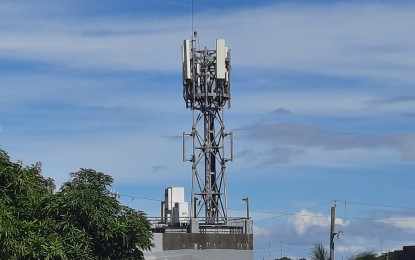
PNA file photo
MANILA – Makati City Representative Luis Campos Jr. has revived his proposal to penalize telecommunications companies (telcos) that fail to supply faster internet speeds to consumers within fixed deadlines.
As proposed by Campos in House Bill (HB) 10215, telcos that are unable to reach compulsory internet speed targets would be slapped with a regulatory fine of up to PHP1 million per day, or PHP365 million per year, until they achieve full compliance.
“The Philippines still has one of the slowest average mobile internet speeds in Southeast Asia, and we want to fix this through an act of Congress,” Campos, the husband of Makati Mayor Abby Binay, said in a statement on Sunday.
In pushing for the swift passage of HB 10215, Campos invoked “the State’s duty to protect the interest of consumers, including internet users, promote their general welfare, and to establish standards of conduct for business and industry.”
The Philippines as of April 2024 had an average mobile internet speed of only 32.37 Mbps, compared to Thailand’s 45.05 Mbps, Vietnam’s 50.88 Mbps, Malaysia’s 91.69 Mbps, Singapore’s 101.43 Mbps, and Brunei’s 102.41 Mbps, according to the Speedtest Global Index by Ookla.
Mbps is short for megabits per second – a measure of network transmission or data transfer speed.
The Philippines now ranks No. 11 worldwide in absolute number of internet users, with an estimated 85 million Filipinos browsing the web, mostly using their mobile phones, or a penetration rate of 74 percent of the population.
HB 10215 also seeks to expressly classify internet connection as a “basic service” within the jurisdiction and regulatory power of the National Telecommunications Commission (NTC).
Internet connection is currently considered a value-added service (VAS). This explains why the NTC lacks the power to impose higher standards and mandatory improvements.
Campos’ bill seeks to amend Republic Act No. 7925, or the Public Telecommunications Policy Law. (PR)
